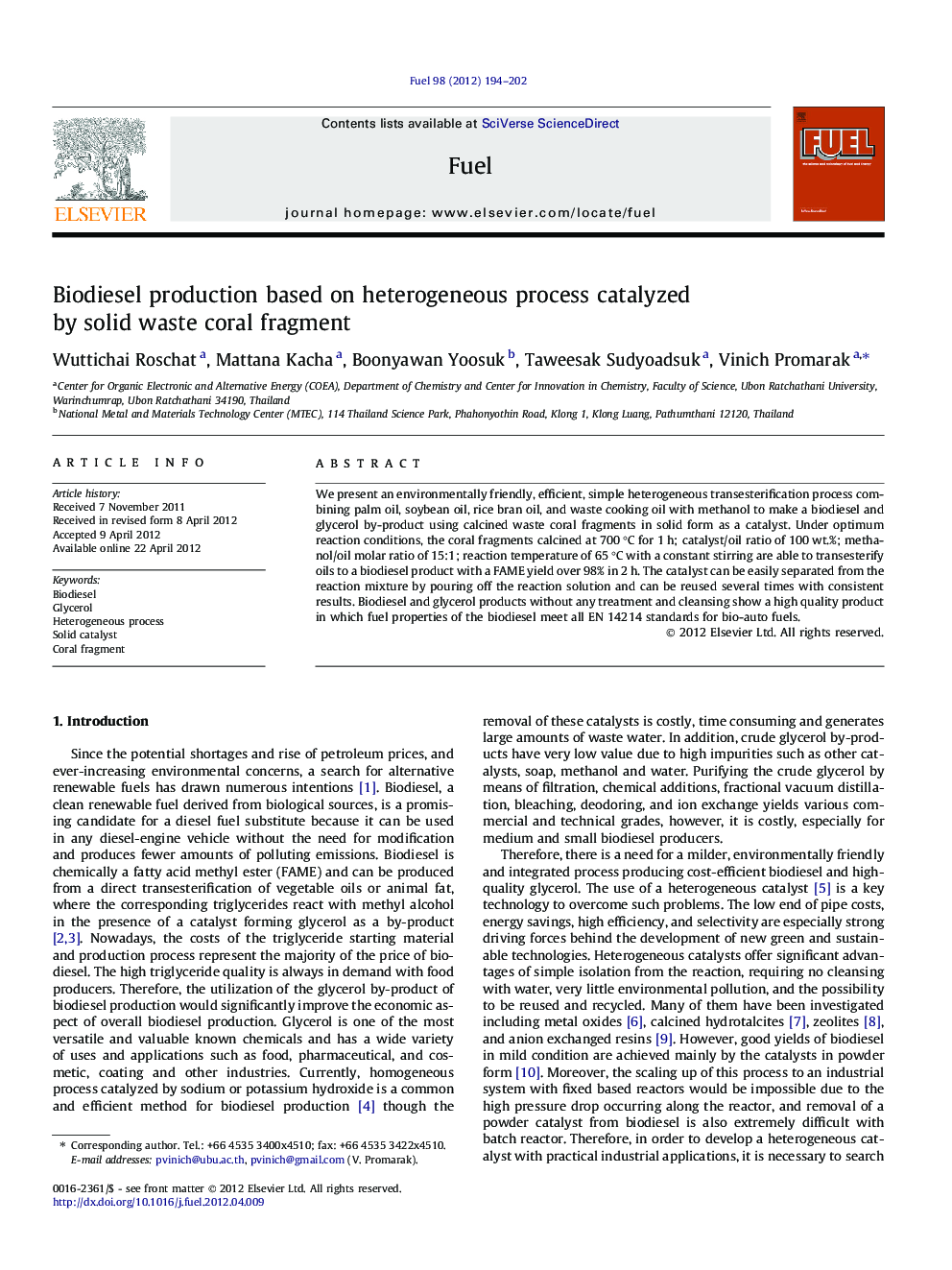| Article ID | Journal | Published Year | Pages | File Type |
|---|---|---|---|---|
| 206328 | Fuel | 2012 | 9 Pages |
We present an environmentally friendly, efficient, simple heterogeneous transesterification process combining palm oil, soybean oil, rice bran oil, and waste cooking oil with methanol to make a biodiesel and glycerol by-product using calcined waste coral fragments in solid form as a catalyst. Under optimum reaction conditions, the coral fragments calcined at 700 °C for 1 h; catalyst/oil ratio of 100 wt.%; methanol/oil molar ratio of 15:1; reaction temperature of 65 °C with a constant stirring are able to transesterify oils to a biodiesel product with a FAME yield over 98% in 2 h. The catalyst can be easily separated from the reaction mixture by pouring off the reaction solution and can be reused several times with consistent results. Biodiesel and glycerol products without any treatment and cleansing show a high quality product in which fuel properties of the biodiesel meet all EN 14214 standards for bio-auto fuels.
Graphical abstractThe calcined coral fragment in bulk solid form shows high potential as catalyst for practical, environmental friendly and low cost biodiesel and glycerol production.Figure optionsDownload full-size imageDownload as PowerPoint slideHighlights► Environmentally friendly, efficient, simple heterogeneous transesterification. ► The coral fragments are able to transesterify oils to biodiesel in 2 h. ► The catalyst can be easily separated from the reaction mixture. ► The catalyst can be used for several times. ► High quality biodiesel and glycerol products without any treatment and cleansing.
